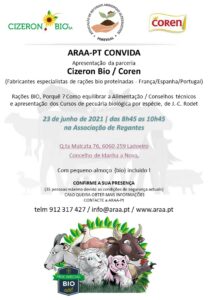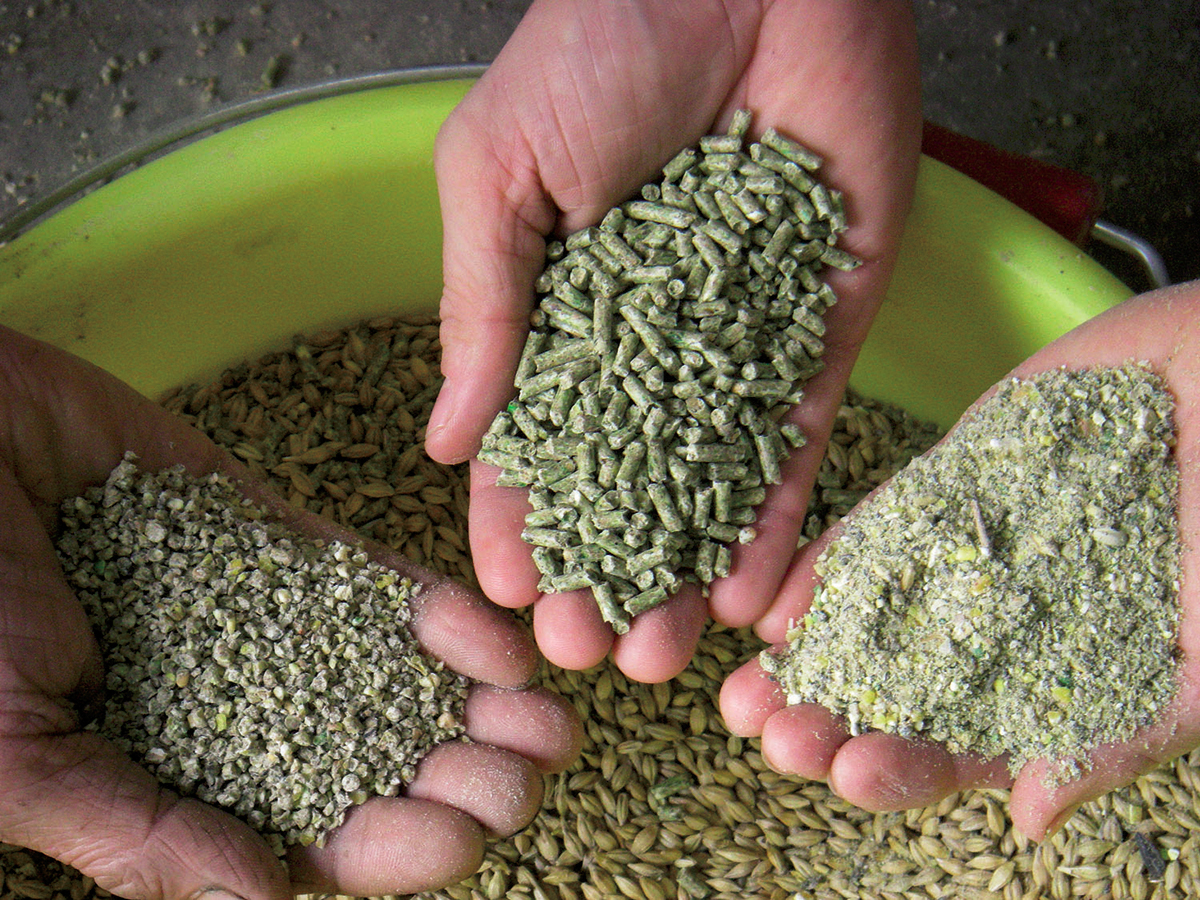Location: Q.ta Malcata 76, 6060-259 Ladoeiro

WHY A COLLECTION OF INFORMATION AND TECHNICAL DOCUMENTS ON ORGANIC FARMING?
Extensive and organic livestock rearing, arouse few vocations of “VET BIO”.
These farms, which are still few and often marginal, are neglected or even abandoned by the services responsible for research and teaching animal health.
Therefore, it seemed important to us to offer livestock farmers (of all animal species) a collection of unpublished essential documents, which address all aspects of husbandry, such as:
- Identification of production factors: therapeutic tools and products that can be used by livestock farmers in organic farming,
- Animal nutrition therapy: foods that have recognized therapeutic properties,
- Veterinary herbal medicine: the main plants that treat animals
- Veterinary homeopathy: basic remedies for the main animal pathologies,
- Animal naturopathy: understanding the natural factors of animal health,
- First aid for animals: solutions for emergency situations in organic farming,
- Veterinary biotherapies: a new vision of animal therapies,
- Germinations and natural hydroponic fodder: bio-active vitamins in animal feed, etc.
A specific document for each animal species (farm animals and pets) with suggestions for food, natural care for all the most common species (bee, ostrich, beef / dairy cow, dairy sheep / meat sheep, quail / guinea fowl, duck / goose, cat and dog, horse / donkey, goat, turkey, snail, pheasant / partridge, poultry, peacock, pigeon, pond fish, pig / wild boar, earthworms …
These documents, the first edition of which was published in 1998 and then regularly updated, are the result of research, practical experiences and the compilation of information gathered in the form of testimonies, lessons, and advices put into practice since 1968, in France, in Portugal, in Quebec… it is about a long course – without pretension – based on experiences acquired from the pioneers of holistic veterinary medicine. Without dogmatism, the information is made available to livestock farmers, technicians, and the other stakeholders in animal husbandry of all species.
The original documents are written in French. Some have been translated (or are being translated) into Portuguese, a few into English.
Volunteer translators make the compiled unpublished information available to as many people as possible. This is our wish: to share the knowledge acquired to provide livestock farmers relevant information for optimal animal health.
For all types of husbandry, it is necessary to integrate 2 rules before undertaking any treatment:
1) Understanding microbial imbalances
Mistrust of pathogens generally leads to an almost systematic and often massive use of disinfectants, sanitizers, decontaminants, sterilization methods using molecules which generally have an aggressive environmental impact.
Provide vaccines is not a credible option. Each vaccine is supposed to allow the production of specific antibodies to a pathology … but “vaccine mania” risks can cause a severe immune disorder by inducing the formation of allergic antibodies (IgE) to the detriment of means of defense innate cellular.
2) Optimize the performance of the immune system
The natural approach to animal health (it is the same in human health) is to collaborate with the immune system and the natural means of defense:
- The quality and stability of the intestinal flora and the various other microbiota of the body.
- The supplementation with bioactive trace elements constitutes a reinforcement of this innate immunity.
Delbet, with his work on magnesium (in human medicine), and
Voisin, with his research on copper (in veterinary medicine),
have demonstrated the relevance and veracity of their therapeutic protocols for infectious conditions caused by immune collapse, both in humans and in animals.
So far, no rigorous scientific contestation has contradicted the statements of these researchers with great experience (in the laboratory as in the field) in human medicine and veterinary medicine.
Note:
To understand nature, we must first observe it before applying protocols.
Dr. Jean-Claude Rodet



Give a Reply
You must be logged in to post a comment.